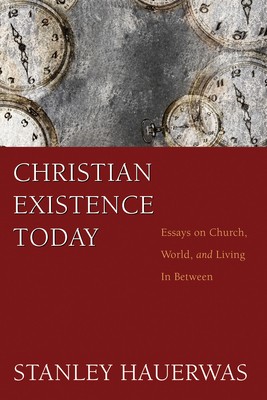
- We will send in 10–14 business days.
- Author: Stanley Hauerwas
- Publisher: Wipf & Stock Publishers
- ISBN-10: 1608997103
- ISBN-13: 9781608997107
- Format: 15 x 22.6 x 1.5 cm, minkšti viršeliai
- Language: English
- SAVE -10% with code: EXTRA
Reviews
Description
Stanley Hauerwas begins this volume with a vigorous response to the charge of sectarianism leveled against his work by James Gustafson, among others. Show me where I am wrong about God, Jesus, the limits of liberalism, the nature of the virtues, or the doctrine of the church, Hauerwas replies to his critics, but do not shortcut that task by calling me a sectarian. The essays that follow explore in a lucid, compelling, firm, and provocative way the church's nature, message, and ministry in the world. Hauerwas writes on the church as God's new language, on clerical character, on the pastor as prophet, on the ministry of the local congregation, on grace and public virtue, and on the relation of church and university. Underlying Hauerwas's argument is his conviction that the most important knowledge Christian convictions involve, and there is much worth knowing for which Christians have no special claim, requires a transformation of the self. Christianity is no 'world view, ' not a form of primitive metaphysics, that can be assessed in comparison to alternative 'world views.' Rather, Christians are people who remain convinced that the truthfulness of their beliefs must be demonstrated in their lives. There is a sense in which Christian convictions are self-referential, but the reference is not to propositions but to lives
EXTRA 10 % discount with code: EXTRA
The promotion ends in 23d.17:46:32
The discount code is valid when purchasing from 10 €. Discounts do not stack.
- Author: Stanley Hauerwas
- Publisher: Wipf & Stock Publishers
- ISBN-10: 1608997103
- ISBN-13: 9781608997107
- Format: 15 x 22.6 x 1.5 cm, minkšti viršeliai
- Language: English English
Stanley Hauerwas begins this volume with a vigorous response to the charge of sectarianism leveled against his work by James Gustafson, among others. Show me where I am wrong about God, Jesus, the limits of liberalism, the nature of the virtues, or the doctrine of the church, Hauerwas replies to his critics, but do not shortcut that task by calling me a sectarian. The essays that follow explore in a lucid, compelling, firm, and provocative way the church's nature, message, and ministry in the world. Hauerwas writes on the church as God's new language, on clerical character, on the pastor as prophet, on the ministry of the local congregation, on grace and public virtue, and on the relation of church and university. Underlying Hauerwas's argument is his conviction that the most important knowledge Christian convictions involve, and there is much worth knowing for which Christians have no special claim, requires a transformation of the self. Christianity is no 'world view, ' not a form of primitive metaphysics, that can be assessed in comparison to alternative 'world views.' Rather, Christians are people who remain convinced that the truthfulness of their beliefs must be demonstrated in their lives. There is a sense in which Christian convictions are self-referential, but the reference is not to propositions but to lives


Reviews